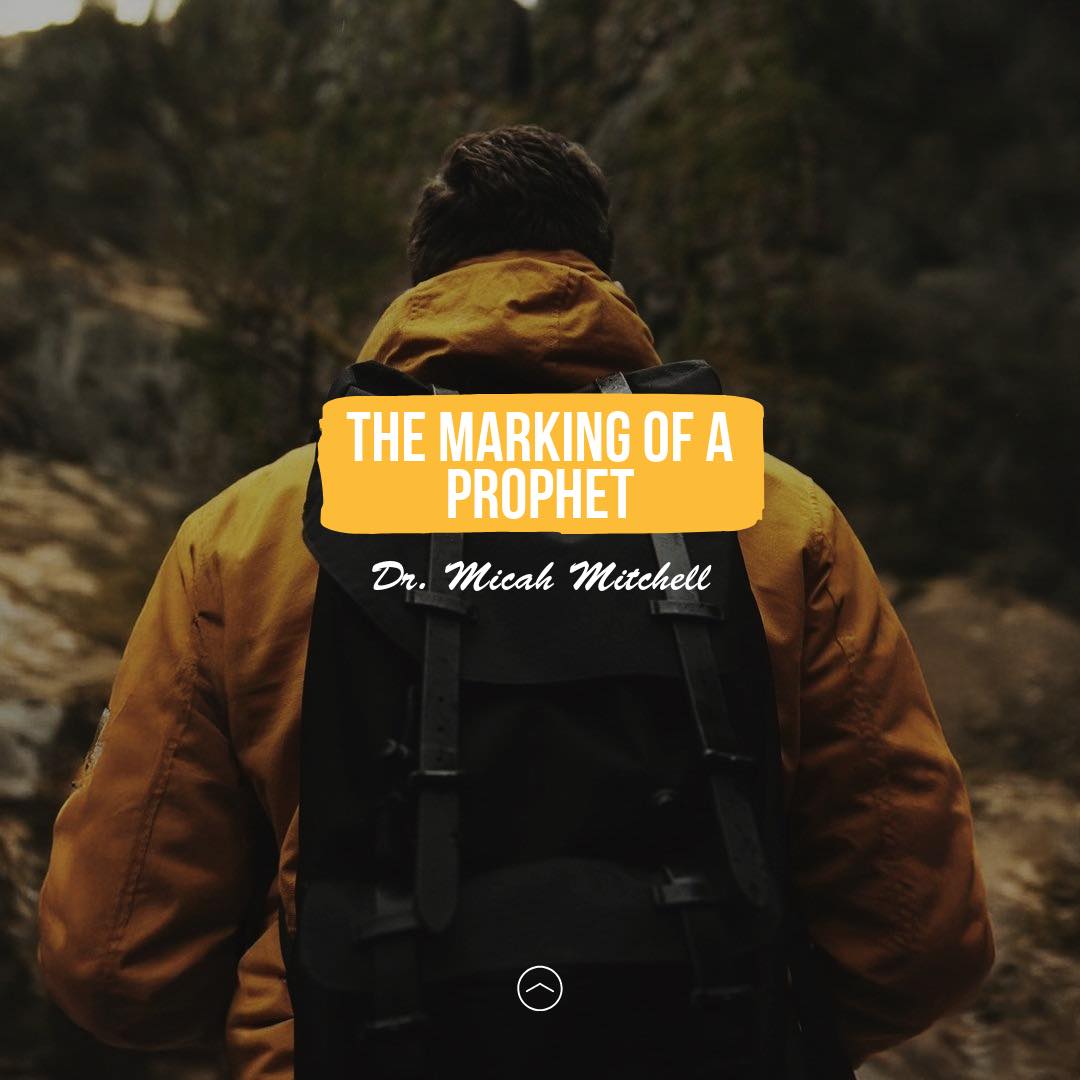Dr. Micah Mitchell
Many want to be a prophet, often focusing on the gifting without recognizing the foundational requirements that shape true prophets of God. There is a process to developing the anointing and character. It is not something you step in and out of, but it is a lifestyle; it is who you are. You can prophesy the paint off the wall but will crumble when any adversity comes your way. There is a discipline that comes that will mark you for the rest of your life.
Two crucial elements stand out: having a personal encounter with the Lord and experiencing suffering. ![]()
1. Having an Encounter with the Lord ![]()
A true prophetic calling is marked by an encounter with the Lord. This moment transforms the individual and sets them on a path of divine purpose.
Joshua encountered the Captain of the Host, who gave him specific instructions for the conquest of Jericho. The encounter is recorded in Joshua 5:13-14:
“Now when Joshua was near Jericho, he looked up and saw a man standing in front of him with a drawn sword in his hand. Joshua approached him and asked, ‘Are you for us or for our enemies?’ ‘Neither,’ he replied, ‘but as commander of the army of the Lord I have now come.’ Then Joshua fell facedown to the ground in reverence and asked him, ‘What message does my Lord have for his servant?’”
This encounter marked Joshua by affirming his leadership role and confirming his calling as the successor to Moses. It established his dependence on God’s guidance rather than his own strength. This moment not only empowered him for the battles ahead but also taught him the importance of humility and reverence in God’s presence. As a result, Joshua was prepared to lead the Israelites into the Promised Land with confidence, knowing he was not alone in his mission.
Ezekiel experienced a powerful encounter with God when he saw the vision of the glory of the Lord (Ezekiel 1:1-3). In this vision, he saw a whirlwind, four living creatures, and the glory of God, which set the stage for his prophetic ministry to the Israelites in exile.
“As I looked, behold, a stormy wind came out of the north, and a great cloud with brightness around it, and fire flashing forth continually, and in the midst of the fire, as it were gleaming metal.”
(Ezekiel 1:4, NASB)
2. Going Through Something and Knowing What It’s Like to Suffer ![]()
Suffering is necessary, because the anointing is produced through crushing. This will also equip the prophet with empathy and understanding, allowing them to minister to others authentically. It is through trials that prophets learn to depend on God and convey His message with depth. When they minister it’s directly to the heart of the person.
Jeremiah, known as the “weeping prophet,” faced significant personal and societal suffering as he delivered God’s messages. His experiences of rejection and sorrow deepened his compassion for the people he prophesied to. God reassured Jeremiah of His presence and purpose despite these challenges.
“But the Lord said to me, ‘Do not say, “I am a youth,” because everywhere I send you, you shall go, and all that I command you, you shall speak. Do not be afraid of them, for I am with you to deliver you,’ declares the Lord.”
(Jeremiah 1:7-8, NASB)
Isaiah’s vision of the Lord in the temple marked him for his prophetic calling, yet he recognized his unworthiness and the weight of the message he was called to bear.
“In the year of King Uzziah’s death, I saw the Lord sitting on a throne, lofty and exalted, with the train of His robe filling the temple. Seraphim stood above Him, each having six wings; with two he covered his face, and with two he covered his feet, and with two he flew. And one called out to another and said, ‘Holy, Holy, Holy, is the Lord of hosts; The whole earth is full of His glory.’”
(Isaiah 6:1-3, NASB)
Isaiah also faced suffering and deep conviction as he delivered God’s messages. In Isaiah 6:5, he expresses his anguish and sense of unworthiness:
“Then I said, ‘Woe is me, for I am undone! Because I am a man of unclean lips, and I dwell in the midst of a people of unclean lips; for my eyes have seen the King, the Lord of hosts.’”
This verse reflects Isaiah’s deep sense of unworthiness and the weight of the message he was called to deliver. It highlights his recognition of sin both in himself and in his people, emphasizing the burden that came with his prophetic ministry.
To be a prophet, one must first encounter the Lord deeply, as this encounter sets the foundation for their ministry. Additionally, experiencing suffering equips them with the empathy necessary to fulfill their calling. Both elements are integral to the development of a true prophet who can speak on behalf of God with authority and compassion.
